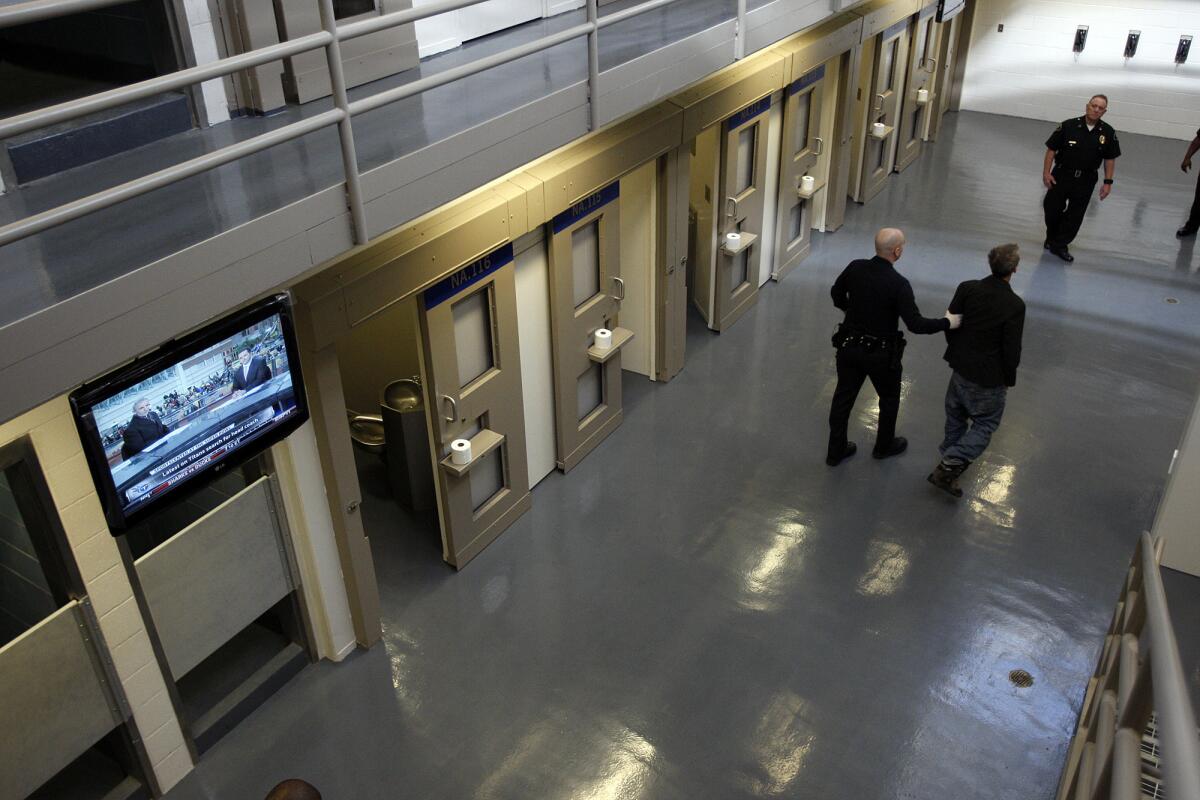California may get more federal money to pay for jailed immigrants

Congressional Republicans are proposing a rare increase in federal funding to help states like California pay for jailing immigrants in the country illegally.
A GOP-led House appropriations panel on Wednesday approved a spending bill that would provide $210 million nationwide in the next fiscal year to help local and state governments pay the incarceration costs, up from $180 million this year.
The funding has long been a top priority of California, which receives a large chunk of the money. But it also has enjoyed the support of lawmakers from both parties from other states who have argued that local and state taxpayers should not have to bear the burden of Washington’s failure to control the border.
The full House still must approve the measure. The Senate appropriations committee has yet to act, but it is likely to come up with a substantial amount since Sen. Dianne Feinstein (D-Calif.) sits on the panel and has pushed to keep the federal funds flowing to her state.
Wednesday’s action came as Los Angeles County officials are making the rounds at congressional offices to push for the funding under the State Criminal Alien Assistance Program.
A bipartisan group of lawmakers, including 26 California House members, recently urged House Appropriations Committee leaders to increase the payments, noting that federal funding had declined significantly “despite soaring state and local detention costs.”
California counties spent about $300 million to incarcerate immigrants in the country illegally in fiscal 2012, according to a survey by the California State Assn. of Counties, and they received roughly $21 million from Washington - “a paltry 7% reimbursement rate,” the lawmakers wrote.
Although the House appropriations subcommittee’s proposal would represent an increase from this year’s level, it would be down from the approximately $237 million provided in fiscal 2013.
And it comes after the Obama administration recommended eliminating the funding altogether.
More to Read
Sign up for Essential California
The most important California stories and recommendations in your inbox every morning.
You may occasionally receive promotional content from the Los Angeles Times.










